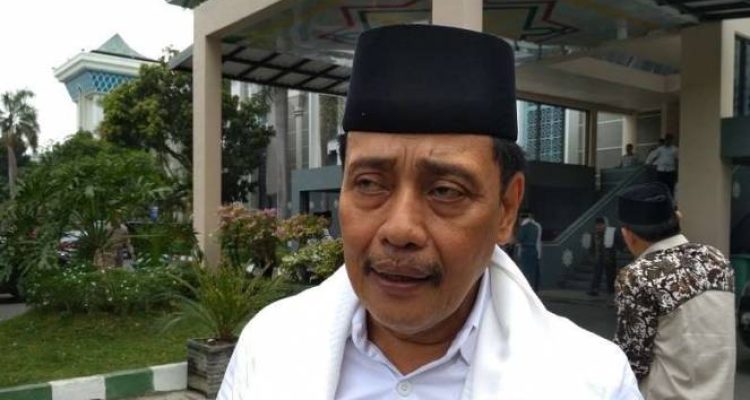EU leaders gathered in Brussels for the EU summit on Thursday. The agenda included how to reach a trade agreement with the US before a Trump-imposed deadline as well as the conflicts in Ukraine and the Middle East.
These live updates from the EU summit in Brussels have been closed. Thank you for reading.
Below you can read a roundup of developments concerning the EU summit from Thursday, June 26:
European Union leaders on Thursday called for even greater efforts to deliver more military support for Ukraine, especially as Russia makes small battlefield gains.
At a summit in Brussels, the bloc's leaders said it was important to offer more "air defense and anti-drone systems, and large-caliber ammunition, to help Ukraine, as it exercises its inherent right to self-defense, to protect its citizens and territory against Russia's intensified daily attacks."
The leaders also underlined the need to help Kyiv's defense industry, which can manufacture weapons and ammunition more quickly and cheaply than its European counterparts.
Ukrainian PresidentVolodymyr Zelenskyywas present for the summit via videolink.
To view this video please enable JavaScript, and consider upgrading to a web browser thatsupports HTML5 video
The leaders of Europe's two biggest economies called on the 27-member bloc to reach a "quick" trade deal with the United States.
"We have encouraged the president of the (European) Commission to now reach a quick agreement with the Americans in the less than two weeks that are left," German ChancellorFriedrich Merztold reporters after talks involving the bloc's 27 leaders and European Commission President Ursula von der Leyen.
"France is in favor of reaching a quick agreement, we don't want it to drag on forever," French PresidentEmmanuel Macronsaid after the summit, adding, however, that European nations "do not want a deal at any cost."
Macron said a fair deal was of paramount importance and that any "goodwill should not be seen as a weakness."
If the US baseline tariff of 10% remained in place, then Europe's response would have to reciprocate that impact, he added.
For her part, von der Leyen said the EU had received the"latest US document"for further negotiations on tariffs and that "all options remain on the table."
"We are assessing it (…) Our message today is clear. We are ready for a deal," she said. "At the same time, we are preparing for the possibility that no satisfactory agreement is reached. This is why we consulted on the rebalancing list and we will defend the European interest as needed."
EU leaders on Thursday agreed to extend sanctions on Russia for an additional six months.
The decision means that the bloc's sanctions overMoscow's full-scale invasion of Ukraine, including the freezing of more than €200 billion ($234 billion) in Russian central bank assets, will remain active until at least the beginning of 2026.
It comes after officials said they were laying out contingency plans to keep the EU's economic punishment on Russia in place should Hungarian leaderViktor Orbanbe obstinate.
Many of the European leaders had feared a refusal by Hungary to renew the measures could blow a massive hole in the leverage the bloc holds over Russia as the United States presses peace efforts.
It’s the first EU summit for German ChancellorFriedrich Merz, who’s vowed thatstrengthening Europe is his priority. There are two issues that seem particularly close to his heart: improving the EU’s competitiveness and striking a quick trade deal with the US.
When Merz arrived in the meeting room this morning, fellow EU leaders welcomed him with applause.Germany is the bloc’s biggest economy, and its word carries weight. Merz is no stranger to EU politics — he was a member of the European Parliament in the early nineties.
The German chancellor looks to be getting increasingly impatient with theEU trade talks with the US, which he has repeatedly called “too complicated.” It is the European Commission that negotiates trade agreements on behalf of the member states.
The bloc is already facingUS import tariffs of 50 percent on its steel and aluminum, 25 percent for cars and car parts, along with a 10 percent tariff on most other EU goods, which President Trump has threated could rise to 50 percent if there is no agreement by July 9.
Over dinner, Commission PresidentUrsula von der Leyenwill update the EU leaders on the state of the talks and ask them how they want to respond to the US deadline. Merz has emphasized that failing to reach a deal with the Americans would certainly hurt Germany’s export-oriented economy. It seems that many leaders do prefer a quick deal over retaliatory measures.
Germany is citing the US trade agreement with the UK as proof that a deal is possible. Sources told DW it is not about weaking the Commission’s mandate but speeding up the process. However, some experts fear that giving in to the US demands too quickly may result in the EU making more concessions than intended.
Ukrainian PresidentVolodymyr Zelenskyyurged the European Council to send "a clear political signal" that Brussels supports Kyiv's efforts to join the European Union as it defends itself againstRussia's full-scale invasion.
"What's needed now is a clear political signal that Ukraine is firmly on the European path and that Europe stands by its promises," Zelenskyy said in a video address to leaders.
In the address, the Ukrainian president also repeated his call to crack down on Russian oil revenues. Zelenskyy said that a $30 (€26) price cap is necessary for "real, lasting peace."
"Sanctions against Russia remain one of the most effective tools for limiting its aggression," he stressed.
Earlier on Thursday, Hungarian Prime Minister Viktor Orban said the EU would not have a common stance on Ukraine's EU membershipdue to his country's opposition.
European Union leaders called for an immediate ceasefire inGazaand urged Israel to respect humanitarian law. However, they did not take action regarding the bloc's formal ties with Israel in light of a human rights review.
"The European Council calls for an immediate ceasefire in Gaza and the unconditional release of all hostages, leading to a permanent end to hostilities," the leaders said inwritten conclusionsafter a discussion on the Middle East in Brussels.
"Israel must fully comply with its obligations under international law, including international humanitarian law," the statement read.
The leaders called on Israel "to fully lift its blockade on Gaza, to allow immediate, unimpeded access and sustained distribution of humanitarian assistance at scale into and throughout Gaza."
Last week, the EU's diplomatic service said in an internal review that there wereindications Israel had breached its human rights obligationsunder the terms of a pact governing its ties with the bloc.
The review caused a rift among member states regarding how to deal with Israel. Ultimately, EU leaders gathered for a summit in Brussels and decided not to act on the review's findings.
However, their statement "takes note of the report" and invites EU foreign ministers to continue discussing it.
EU leaders also welcomed the ceasefire betweenIran and Israel. They urged all parties "to abide by international law, show restraint, and refrain from taking action which could lead to a new escalation."
They reaffirmed thatIran must never acquire nuclear weaponsand stated that the European Union will continue to participate in diplomatic efforts "to reduce tensions and to bring about a lasting solution to the Iranian nuclear issue."
To view this video please enable JavaScript, and consider upgrading to a web browser thatsupports HTML5 video
Slovakian Prime MinisterRobert Ficodeclared that his country would not be backing a new sanctions package against Russia proposed by the European Union.
Instead, Slovakia is pushing for a delay in the vote until their concerns regarding gas supplies after 2027 are addressed, he said.
"Tomorrow, Slovakia will not vote on the 18th sanctions package," he told a parliamentary committee on Thursday before he left for the summit. "We consider it to be one package with (the end of imports plan) and until fundamental issues are resolved, we cannot adopt further sanctions."
Fico reiterated his position that plans to end Russian gas imports by 2028 could lead to supply shortages, price hikes, and potential losses from breaching the long-term contract with Gazprom through arbitration.
On June 10, the European Commission proposed a new round ofsanctions against Russiafor its full-scale invasion of Ukraine more than three years ago. The sanctions target Moscow's energy revenues, banks, and military industry.
However,Slovakia and Hungary oppose the sanctionsbecause they disagree with the Commission's proposal to end Russian energy imports by the end of 2027.
To view this video please enable JavaScript, and consider upgrading to a web browser thatsupports HTML5 video
Time is running out for American and European trade negotiators working to cut a tariff deal before a July 9 deadline set by US PresidentDonald Trump.
So far, it remains unclear whether or not Trump's threat of imposinga 50% levy on nearly all EU importswill materialize — a move that could escalate the dispute into a full-blown transatlantic trade war.
In the meantime, investiros have turned their attention towards Europe and especially Germany, the continent's largest economy.
While the American S&P 500 stock market index has seen big ups and downs since Trump became US president in January,Germany's blue-chip DAX indexhas risen steadily, and is up more than 15% now.
Click here to read more about how Germany has seen unexpected growth off the back of uncertainty in Washington.
Spain's Prime MinisterPedro Sanchezsaid it would be a double standard for the EU to pursue further sanctions against Russia over the war in Ukraine while not sanctioning Israel forthe war in Gaza.
Sanchez urged the EU to suspendits cooperation deal with Israel, pointing to "the catastrophic situation of genocide unfolding in Gaza."
He added that "it makes no sense" that the bloc has imposed 18 rounds of sanctions on Russia over its invasion of Ukraine, but "in a double standard, is not even capable of suspending an association deal."
In March this year, a United Nations-backed investigation said that Israel had committed "genocidal acts" during the conflict with the Palestinian militant group Hamas.
The UN Independent International Commission of Inquiry on the Occupied Palestinian Territory, including East Jerusalem, and Israel, said this had been done through the systematic destruction of sexual and reproductive healthcare facilities in Gaza.
Meanwhile, Irish leader Michael Martin echoed calls for Israel to adhere to the human rights clauses of theEU-Israel Association Agreementamid "the dire, catastrophic humanitarian situation in Gaza."
"I will be saying to my European colleagues that the people of Europe find it incomprehensible that Europe does not seem to be in a position to put pressure on Israel, and leverage on Israel, to stop this war in Gaza, to stop the continuing slaughter of children and innocent civilians," he said.
He said, "The tactic of undermining those who would even question what is happening in Gaza also needs to stop."
Both Spain and Ireland are among countries formally recognizing Palestinian statehood.
Israel has repeatedly rejected claims that it is committinggenocide in Gazaand maintains that it is fighting Hamas militants in the Palestinian enclave.
Greek Prime Minister Kyriakos Mitsotakis said thatmigration across the Mediterraneanwould be on the agenda at Thursday's EU summit.
"I will also have an opportunity to inform my colleagues about the problems that we're currently having with Libya, and to send a very clear signal to encourage the Libyan authorities — both ineastern and western Libya— that they need to cooperate with the European countries in order for these boats managed by smugglers not to even leave the Libyan coast," he told reporters.
Mitsotakis also flagged discussion about "a new policy regarding returns," which he called "the missing link in the current migration package."
Baltic leaders have renewed their calls for Ukraine to join the European Union bloc's summit in Brussels.
Lithuanian PresidentGitanas Nausedamade a veiled reference toHungary objecting to the EU's eastward enlargement.
"Unfortunately due to some bilateral obstacles — and you know what I am talking about — Ukraine cannot open the first cluster of negotiations. And I think we have to open this first cluster as soon as possible," Nauseda told reporters as he arrived at the EU summit.
"I think it is productive to set an ambitious political target. For example, to see Ukraine as a member of the European Union by January 1, 2030. It's tough, but at the same time it's motivating."
Estonian Prime MinisterKristen Michalalso called for Ukraine to join the 27-member bloc.
"Helping Ukraine means that we should pressure Russia continuously, that means 18th sanctions package as strong as possible, and also enlargement — both Ukraine and Moldova," he told reporters.
To view this video please enable JavaScript, and consider upgrading to a web browser thatsupports HTML5 video
German ChancellorFriedrich Merzemphasized the need to strike a trade deal with the Trump administation as he arrived for his first EU summit in Brussels since taking office in May.
"Europe is facing crucial weeks and months," Merz said.
"I support the European Commission in all its endeavours to reach a trade agreement with the US quickly."
US President Donald Trump initially imposed high tariffs on many countries, including EU member states, before temporatily suspending the measures. But the suspensions ends on July 9.
Meanwhile, Merz also underlined the imporance of theEU-Mercosur trade dealwith Argentina, Brazil, Paraguay and Uruguay.
The EU summit will kick off at 11 a.m. CET (0900 GMT). Working sessions of the European Council are scheduled throughout the day.
Ukrainian PresidentVolodymyr Zelenskyyis expected to hold talks with the European leaders through video conference later in the afternoon.
Thewar in Ukraineis set to remain a pressing concern for the EU, as members discuss an 18th round of sanctions against Russia. Talks will also be held on whether a price cap on Russian oil needs to be maintained — steps that some nations have opposed as it could cause energy prices to rise.
Meanwhile, leaders are expected to inform the European Commission if they want a quick trade deal with Washington, which would mean the US getting better terms, or to escalate the dispute in hopes of something better.
US PresidentDonald Trumphas given a deadline of July 9 for a deal.
Officials and diplomats have hinted at a quick deal being the preferable option for most.
To view this video please enable JavaScript, and consider upgrading to a web browser thatsupports HTML5 video
European leaders will also address thewars in the Middle Eastamid concerns about the fallout from the escalation that risks the stability of the region.
The humanitarian situation in Gaza will be a key focus.
The EU is also making the push to bring back negotiations with Iran over itsnuclear program.
European defense and security, migration and internal security will also be on the docket for discussion.
"We will address several issues that must be tackled together to advance our common ambitions: to build a more competitive, safer and more autonomous Europe for our citizens, and to ensure that the European Union can be an effective, predictable and reliable global actor," Antonio Costa, President of the European Council, said in a statement.
Leaders of the European Union's 27 member states are meeting in Brussels on Thursday for a one-day summit.
Discussions on imposing stricter sanctions on Russia and ways to resolve the US tariffs conflict rank high on the agenda.
Most heads of state and government will go into the European talks straight from aNATO summit, where they pledged a landmark defense spending boost, brushing aside some of their differences with US President Donald Trump.
Stay tuned as we get you the latest news and analyses from the EU summit.




